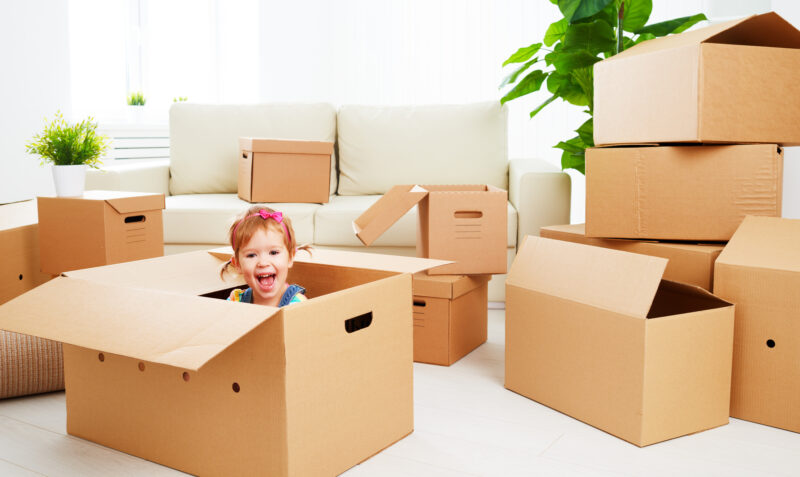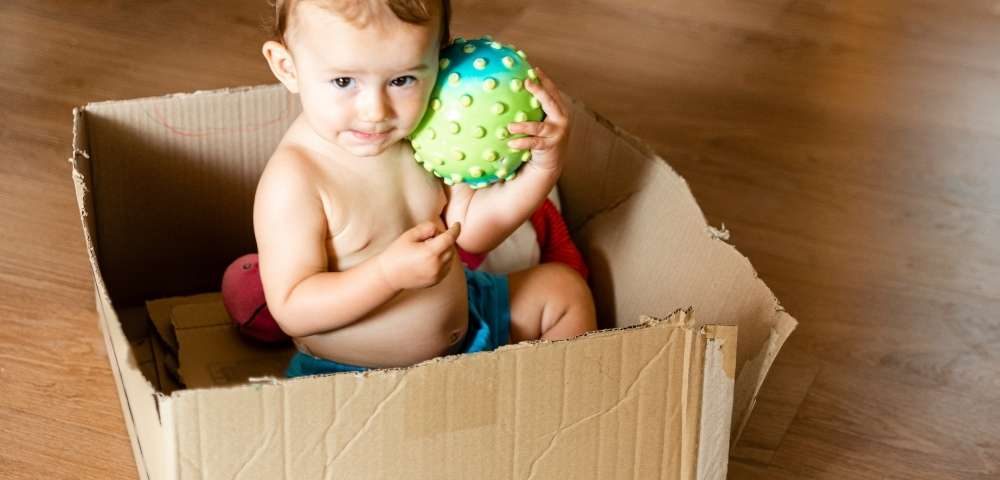Moving homes is universally acknowledged as one of life’s most stressful events. Add a baby into the mix, and the stress levels can soar to new heights. However, with the right approach, moving with a baby can be a smooth and even enjoyable process.
This article aims to provide comprehensive guidance on how to move with a baby stress-free, covering everything from planning and packing to settling into your new home.
Challenge
Firstly, it’s important to recognize why moving with a baby presents additional challenges. Babies are creatures of habit who thrive on routine and familiarity. The disruption caused by moving can lead to increased fussiness, sleep disturbances, and general unease. Visit this website if you need help with any of these particular challenges.
Moreover, the sheer amount of items babies need—from cribs to countless tiny socks—adds to the packing challenge. Recognizing these challenges is the first step in devising a plan to mitigate them.
Early Planning is Key

The cornerstone of a stress-free move with a baby is early planning. Ideally, start the moving process several weeks or even months in advance. This gives you ample time to sort through your belongings, decide what to keep, sell, or donate, and begin packing non-essential items. Early planning also allows you to research and book a reputable company well in advance. Last-minute rushes are almost guaranteed to be stressful, so give yourself the luxury of time.
Secure Baby Essentials
When packing, prioritize your baby’s essentials and pack them last. This includes not only daily necessities like diapers, wipes, formula, or breast milk, food, and a few changes of clothes but also familiar items that can help soothe your baby, such as favorite toys or a special blanket. These essentials should be easily accessible throughout the move. Consider packing these items in a clearly labeled bag or suitcase that you keep with you, rather than in the moving truck.
Maintain Routine as Much as Possible

Try to keep your baby’s routine as consistent as possible in the days leading up to and following the move. This includes meal times, naps, and bedtime routines. A familiar routine amidst the chaos of moving boxes and new environments can provide a sense of security and normalcy for your baby.
Safe Spaces
During the packing and unpacking phases, create a safe and baby-proofed area where your baby can play and rest. This could be a playpen or a secured area of the living room with familiar toys and comforts. Not only does this keep your baby safe, but it also allows you to focus on the task at hand without constant worry.
Enlist Help
Do not underestimate the power of assistance. Enlist the help of family and friends to watch your baby during critical moments of the move, such as on packing day or moving day. If possible, consider hiring a babysitter or asking a family member to take your baby for a few hours so you can concentrate on moving tasks. This can also be a good opportunity for your baby to have a fun day away from the stress and confusion of the moving process.
Settling In

Once you arrive at your new home, prioritize setting up your baby’s room or designated sleeping area first. Familiar sights, such as their crib, toys, and decorations, can help your baby adjust more quickly to the new environment. Try to recreate the setup from your old home as closely as possible. The quicker your baby feels at home, the easier the transition will be for everyone.
Take Care of Yourself

Last but not least, remember to take care of yourself. Moving is physically and emotionally taxing, and it’s easy to neglect your own needs when you’re focused on making the transition as smooth as possible for your baby. However, maintaining your own health and well-being is crucial to managing stress and being there for your baby. Make sure to get enough rest, eat well, and take breaks when you need them.
FAQs
How can I make travel time easier for my baby during the move?
To make travel time easier for your baby, plan the drive or flight around their nap schedule if possible. This can help ensure they sleep through a portion of the journey. Additionally, keep a bag of essentials handy, including snacks, water, extra diapers, and a few favorite toys to keep them entertained. If you’re driving, plan for regular stops to give your baby a break from the car seat.
What’s the best way to introduce my baby to our new home?
Start by introducing your baby to one room at a time to avoid overwhelming them. Spend some playtime in each new area to help them feel comfortable and secure. Consistently using familiar items like blankets, toys, and even playing familiar music can help your baby acclimate to the new surroundings more smoothly.
How soon should I start packing my baby’s items before the move?
It’s advisable to pack your baby’s items as late as possible, ideally a day or two before the move. This way, you ensure that all the essentials they need on a daily basis are available right until it’s time to move. Always keep a separate essentials bag for the actual moving day and the first few days after the move.
Can changing homes affect my baby’s sleep pattern? How can I address it?
Yes, changing homes can disrupt your baby’s sleep pattern due to unfamiliar surroundings and a break in routine. To address this, try to set up the sleeping area to resemble the old environment as much as possible. Stick to your usual bedtime routine to provide comfort and familiarity. It may take a few days for your baby to adjust, but consistency is key.
How do I deal with unpacking once we’ve moved with a baby?
Approach unpacking with a strategy by prioritizing the baby’s room and essential areas like the kitchen and bathroom. Unpack during your baby’s nap times or when they are otherwise occupied in a safe space. It’s also helpful to accept that unpacking with a baby may take longer than usual, so give yourself grace and unpack at a pace that keeps stress levels low.
What should I do if my baby seems unusually fussy or stressed after the move?
If your baby is unusually fussy or stressed after the move, extra cuddles, comfort, and one-on-one time can help. Maintain a calm demeanor to help reassure them. If the fussiness persists, maintain their routine as much as possible and consider creating quiet, soothing environments for them to relax in. If you’re concerned about their adjustment, consult with a pediatrician for additional advice and reassurance.
Final Words
Moving with a baby requires extra planning, patience, and care, but it’s entirely possible to make the transition smoothly and with minimal stress. By planning ahead, maintaining routines, securing baby essentials, and asking for help when needed, you can ensure that you and your baby settle into your new home with ease.
Remember, it’s not just about moving belongings from one place to another but transitioning your family into a new chapter of life. With a positive outlook and thorough preparation, you can make moving an exciting adventure for your family.
Related Posts:















